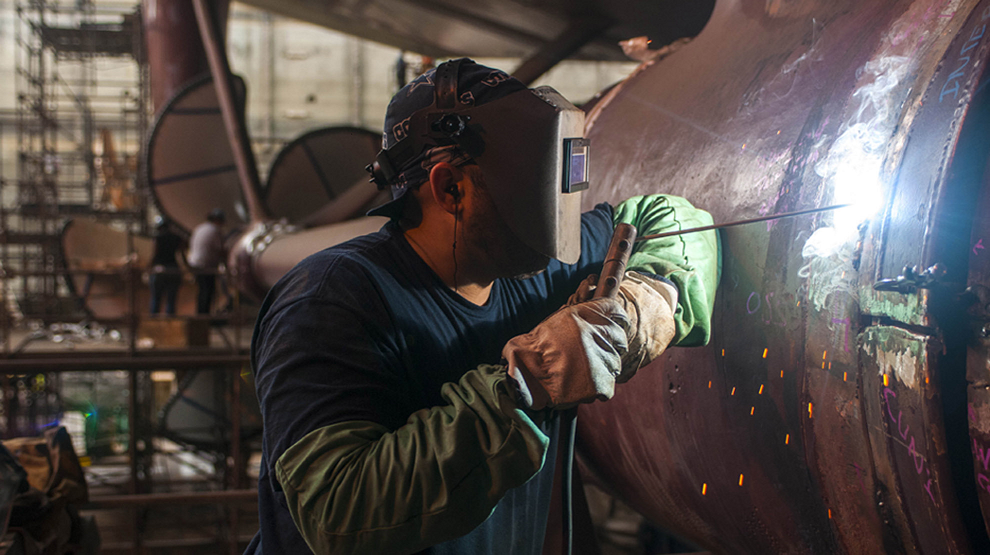
The sweeping COVID-19 stimulus package passed in March does not cover more than $1 billion in COVID-19-related costs run up by the defense contractors, Ellen Lord, the undersecretary of defense for acquisition, told lawmakers Wednesday.
Section 3610 of the CARES Act allows federal agencies to reimburse contractors for payments to employees prevented from working due to COVID-19 facility closures or other mitigation efforts, Lord told members of the House Armed Services Committee. However, the act does not authorize paying companies for the cleaning and sterilization costs, purchasing personal protective equipment, supply chain delays and expenses related to implementing the Centers for Disease Control and Prevention guidance to reopen.
Roughly 20,000 companies have defense contracts, according to Lord. These firms range in size from small family-run businesses to the world’s largest defense manufacturing corporations. They create everything from small gears and pumps to aircraft carriers.
“Section 3610 relief costs are just one category of COVID-19 related costs being experienced by the [defense industrial base],” Lord said.
Additionally, Lord reminded the panel the Department of Defense was authorized to reimburse contractors qualifying for payments under CARES Act section 3610, but has yet to be appropriated funding to pay such claims.
As for the estimated more than $1 billion non-section 3610 expenses the defense industry is shouldering, Lord said, “As with section 3610, the department does not have the funding to cover these costs.”
So far, of the companies Lord’s office is tracking, 960 firms closed because of COVID-19 at some point during the past three months. During this time, 859 companies have reopened, and 101 companies are currently shuttered, Lord said.
Three types of defense contractors are experiencing the highest number of COVID-19-related work delays and closures, Lord told the panel. The aviation industry, particularly firms involved with aircraft propulsion, is one area, Lord said, “in large part due to the implosion of the commercial aviation industry.”
In April, Lockheed Martin announced F-35 Lightning II Joint Strike Fighter production was slowing in 2020 because of COVID-19-related supply chain slowdowns. Lockheed Martin executives told analysts during a conference call to expect predicted 2020 sales to likely drop by a quarter of a billion to half a billion dollars, to be between $62.25 billion and $64 billion for the year.
While shipyards experienced work disruptions early on, Lord said the firms in this business sector are coming back online now.
Companies involved with launching defense satellites make up the third sector hit hard by COVID-19-related delays. As is the case with aviation, Lord said this industry also depends heavily on firms working who also rely on commercial contracts.
“We are optimistic that we see a trend improving in terms of efficiency and ability to operate,” Lord said. “We hope to mitigate any spike from a second wave of COVID.”





